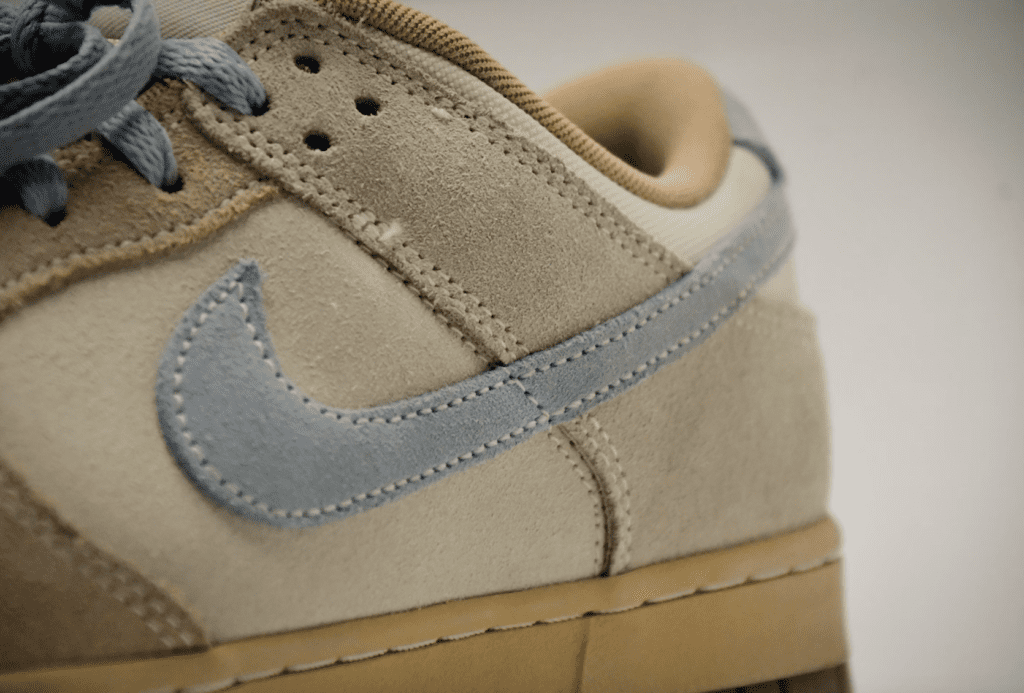A federal court has doubled down on an earlier decision that a trademark dispute between Nike and a smaller sportswear company is “exceptional” under federal trademark law, and ordered Nike to pay millions in attorneys’ fees as a result. In an order on October 16, Judge Michael Baylson of the U.S. District Court for the Eastern District of Pennsylvania ordered Nike to pay a sum of more than $5 million in attorney’s fees to Lontex Corp. in connection with the trademark infringement lawsuit that the Pennsylvania-based sportswear company waged against Nike.
Judge Baylson’s order follows a July remand from the Third Circuit Court of Appeals, which instructed the district court to reconsider whether Nike’s litigation conduct justified such a sizable monetary award. But after a review of evidence and the recommendations set out in a court-ordered review in September, which found Nike had acted with “reckless indifference” to Lontex’s trademark rights, the district court affirmed the report’s conclusion and awarded the fees. According to Judge Baylson’s order, Nike’s behavior during the pretrial and discovery phases of the case was overly aggressive, improper, and unreasonable under the Lanham Act.
The Background: Lontex Corporation, which specializes in athletic apparel, filed its original lawsuit against Nike, Inc. in 2019, alleging that the Beaverton, Oregon-based sportswear giant had infringed on its “Cool Compression” trademark. The case went to trial, and the jury sided with Lontex, determining that Nike’s actions were willful, and as a result, awarded punitive damages to the much-smaller sportswear company. The district court also awarded $5 million in attorneys’ fees to Lontex after finding that the case had been especially contentious and that Nike’s conduct rose to the level of being “exceptional” under the Lanham Act.
Nike appealed the decision, and in July, the Third Circuit Court of Appeals affirmed the jury’s findings on liability but remanded the attorneys’ fee issue back to the district court for reconsideration. The appellate court instructed the lower court to take a closer look at whether Nike’s litigation strategy – specifically during the pretrial and discovery phases – was unreasonable enough to warrant attorneys’ fees, which led Judge Baylson to appoint JAMS special master, Hon. Jane Greenspan to conduct a review of the case.
Greenspan prepared a Report & Recommendation (“R&R”), in which she highlighted several instances of Nike’s overly aggressive tactics. After reviewing Greenspan’s findings, the court determined that Nike’s litigation conduct was, indeed, exceptional, while also reconsidering its original determination about one of the Lanham Act factors.
> Legal Standards for “Exceptional” Cases: Under the Lanham Act, a case can be deemed “exceptional” if one party demonstrates willful misconduct, bad faith, or engages in unreasonable litigation tactics. In infringement lawsuits, attorneys’ fees are generally not awarded unless there is clear evidence that one party acted in a way that stands out from the norm, either through willful infringement or improper legal strategies that burden the opposing party. In this instance, Nike’s aggressive discovery tactics and pretrial conduct, which Greenspan’s report outlined in fiery detail, met the threshold for the court to make this designation.
Nike’s “Unreasonable” Litigation Tactics
A key focus of the court’s affirmation of Greenspan’s report was Nike’s behavior during the discovery phase, which was described as “exceptionally contentious.” One issue was Nike’s failure to produce a managerial witness with knowledge of its sales practices, according to Judge Baylson. Despite a court order requiring Nike to produce the witness, the Swoosh delayed for more than six months, forcing Lontex to file multiple motions to compel. The court noted that this delay not only prolonged the litigation but also imposed unnecessary financial burdens on Lontex.
The court also pointed to Nike’s Motion for Summary Judgment, which generated an overwhelming volume of documents. This tactic was seen as excessive and designed to complicate the pretrial process, according to Greenspan’s report. The court noted that the discovery disputes were so pervasive that it had to appoint a Special Master to manage the process, an unusual step that illustrated the contentious nature of the case.
Still yet, the court highlighted Nike’s reluctance to concede Lontex’s ownership of the trademark at the center of the case. Despite Lontex’s U.S. trademark registration for “Cool Compression,” Nike refused to acknowledge this ownership until the summary judgment hearing.” Judge Baylson found this delay to be unreasonable and another example of Nike’s aggressive litigation strategy.
Exceptional Case & Attorneys’ Fees
In its recently-issued order, the court vacated its previous finding that Nike’s litigation behavior was not “so outrageous as to be a positive factor on the ‘exceptional’ issue.” In the filing, Judge Baylson stated, “I have decided to vacate my prior finding about Nike’s conduct and to instead, make a specific finding that Nike’s pretrial conduct was in several instances unreasonable and improper.” He went on to emphasize a statement reportedly made by a Nike official, who told Lontex that Nike would “kill” the smaller company. The court had excluded this statement from the trial record due to concerns about its prejudicial effect, and it also did not allow it to be considered in the exceptional case issue. In his memorandum, Judge Baylson said, “I fault myself for not recalling it at the time I was making the finding that Nike’s conduct was not improper.”
Along with the original attorney’s fee award, the court has also granted Lontex the right to file a new supplemental motion for additional fees, covering the time spent preparing post-remand briefs, which will push the award past the original $5 million fee. Additionally, the court awarded market rate interest on the original fee award. This interest will accrue from the date the fees were initially awarded until the time Nike makes the payment.
The case is Lontex Corporation v. Nike, Inc., 2:18-cv-05623 (E.D. Pa.).














